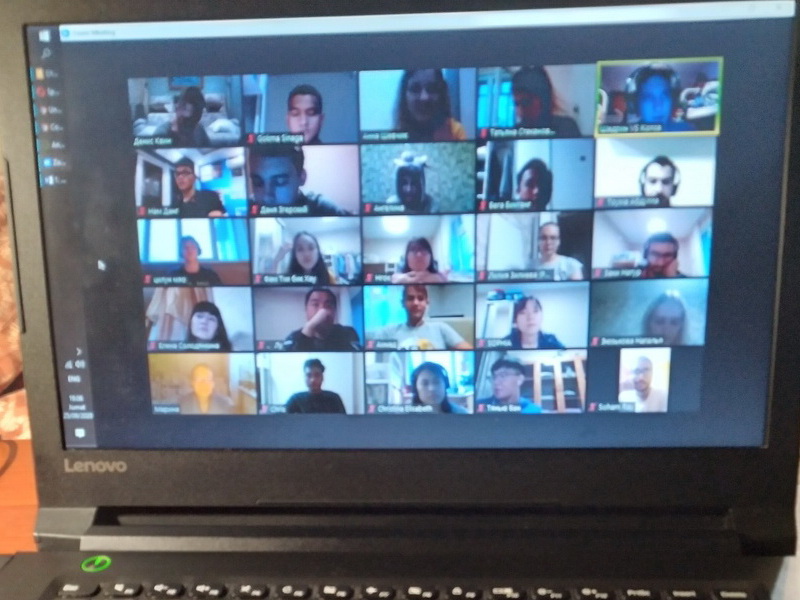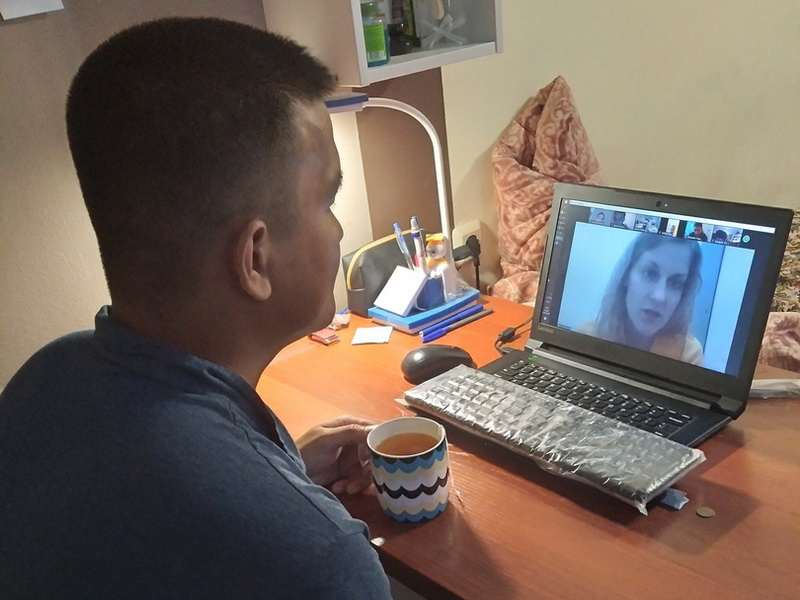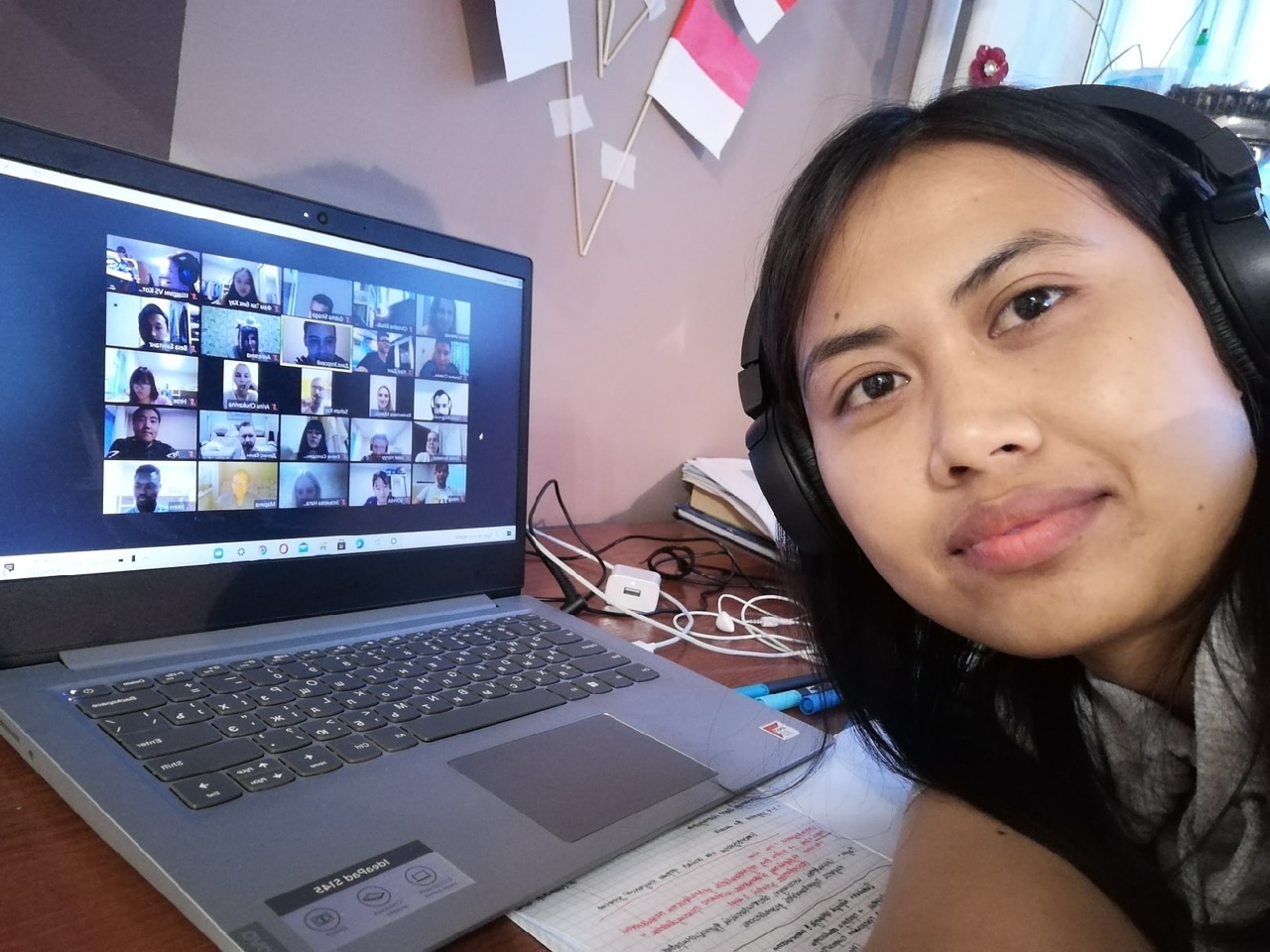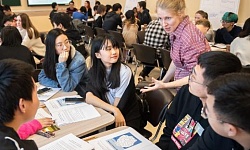Over the past 5 years, several hundred international students from almost all the Tomsk universities have passed through the TSU Russian Speaking Club. We talk with Anna Shevchik, head of the club and associate professor of the Russian Language, Department at the Faculty of Philology, about distance innovations, scaling strategy, and the club franchise.
- Are the club meetings taking place now, despite the pandemic?
- Yes, meetings are held online in Zoom. In the spring we broke off the meetings because it was impossible to meet face to face, and the remote format required new approaches. Therefore, while students and teachers met on the distance learning platforms, we were simultaneously developing a new concept for the club. This was necessary so that our meetings did not turn into Russian language lessons but remained in a club format.
- Did you have a lot of difficulties in transferring your activities to the online format?
- Difficulties are connected with the fact that 7-12% of communication with international students consists of verbal aspects. The rest is nonverbal means. When communicating remotely, it is necessary to select a new type of nonverbal interaction, because our club covers both native speakers and beginners. That is, the contact that is created between the members of the club with different levels of knowledge of the Russian language is established precisely nonverbally. Therefore, when transferring online, it was necessary to at least partially replace nonverbal means.

- How much have you changed in the new conditions?
- In a remote format, it is very difficult to maintain the attention and dynamics of the meeting, when many people, more than 30 people, are involved. There are also difficulties with the unpredictability of the meeting: how many students there will be and what level of language they have. It was difficult in the offline format, but over 5 years we have found a solution to the problem and we consider it our innovation.
Our traditional method of communication in groups, which is used in many language clubs, is, in general, quite successfully transferred by us to a distance format. We use session rooms where volunteers communicate with international students and this is interspersed with communication in the common room. When our meetings turned out to have 7-8 session rooms, this significantly reduced the pace of the meeting, so we decided to allocate an additional day for classes.
- Are there as many people in the club now as before?
- We have even more participants. But sometimes even with live communication, it reached up to 50 people per meeting, especially during a festive or culinary one. Usually, there were 25 people at the meetings, but in September there were already 35–40 people. To improve the efficiency of the meetings, we decided to hold them now twice a week with no more than 20 participants each. Both volunteers and international students will attend them. Now we have Thursday that was added to the traditional meetings on Fridays at 19:00.
I think that the online club can remain in demand in parallel with live communication because we have graduates who have left Tomsk and continue to communicate with us because they want to return to the student atmosphere. And there is such an example as Begimai Rysalieva, who was a volunteer for a Russian club for two years and at the same time taught Russian. She graduated with a master’s diploma in Russian as a foreign language and continues to participate in meetings of our club and as a teacher does not lose touch with her alma mater.

- Are the club members only TSU students? Or do you have students from other universities?
- The TSU Russian Speaking Club is an open platform for communication, but first of all, it is aimed at students of Tomsk State University. When we worked offline, every year there were students of TPU, TUSUR, and TSPU who joined us. But now, due to the overcrowded September meetings, we only work with TSU students. When we split up, we may return to other universities, but for now, we need to deal with our students.
- Are there those who have entered the university, but still cannot come?
- Yes, we have such students. They say that they want to come, see the university, and get to know Tomsk. Especially for them, last week we held a meeting with "Memory - Tomsk". It was a memory training game: the volunteers introduced students to the most beautiful locations in Tomsk, the task of the participants was to remember as many sights as possible, their names, and related interesting facts.

- What are your plans for the next semester?
- The main task of this semester is to summarize the experience. The club started in 2015 and for 5 years has developed its methodology, principles, and technologies of work. We want to expand it: to open branches at university dormitories, to be in the library. It has already been decided that there will be two offline clubs this academic year, but the locations have yet to be decided.
Our strategy now is scaling, with an increase in the number of branches, because we understand that one club space cannot work effectively if there are more than 25 participants at a meeting.
I am deeply convinced that people will cope with the language barrier if they feel that they are ready to be listened to, that they are interesting. This is connected with our thematic plan and, in general, our entire philosophy. I hope that the atmosphere and principles we have built will continue to work and that, as a result, all our people will successfully adapt to the Russian-speaking society.

